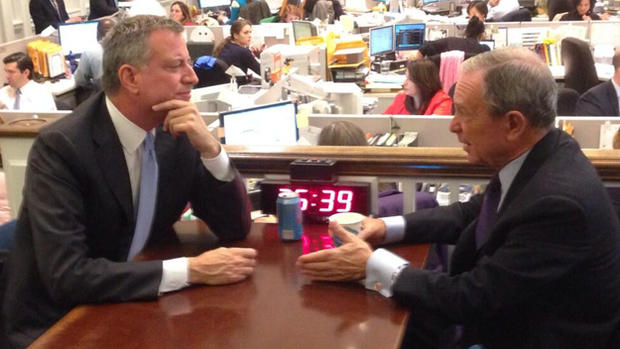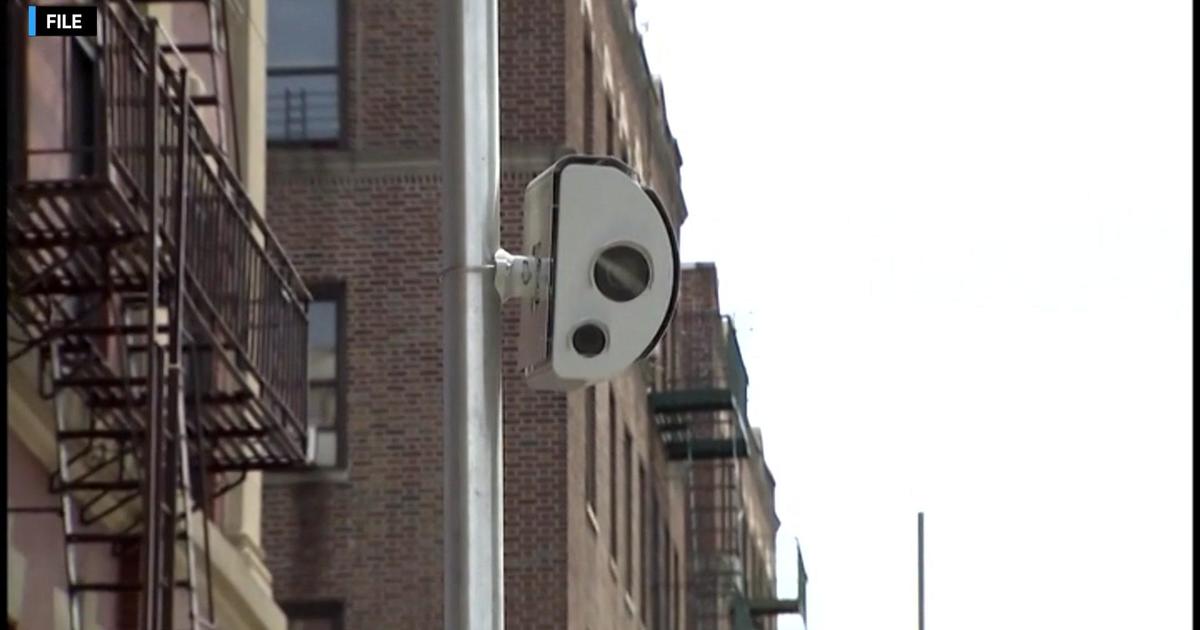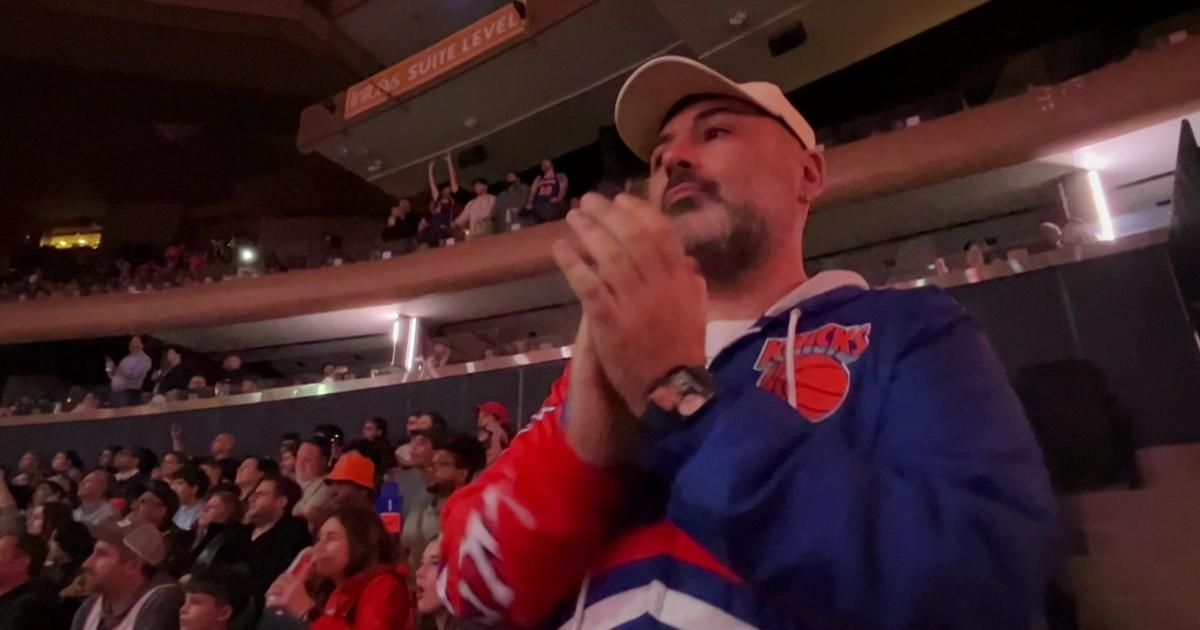De Blasio Names Transition Team Leaders As Agenda Goes Under Microscope
NEW YORK (CBSNewYork/AP) -- Mayor-elect Bill de Blasio has named two longtime civic leaders to head his transition team.
De Blasio said Wednesday that Jennifer Jones Austin and Carl Weisbrod will serve as co-chairs.
"Today is now the first day of an eight-week sprint to preparing our new administration. That is officially 55 days, and we are hitting the ground running," de Blasio said on Monday afternoon.
De Blasio's transition chairs said they'll welcome talent and ideas from all over as long as they share progressive values and are competent and effective.
Bill de Blasio Names Transition Team Chairs
Austin is chief executive officer and executive director of the Federation of Protestant Welfare Agencies. She's also held positions in city and state governments.
WATCH: Bill De Blasio Elected Mayor Of NYC | Joe Lhota Concedes NYC Mayoral Race
Weisbrod has led city agencies and public-private partnerships in three mayoral administrations.
Bill de Blasio Names Transition Team Chairs
Beginning in the late 1970s, he led city and state efforts to revive the Times Square area. He also was the founding president of the New York City Economic Development Corporation.
Emboldened by a historic landslide that made him the first Democratic mayor of New York City in a generation, de Blasio comes to office hoping his victory will grant him a mandate to push forward an ambitious liberal legislative agenda and tackle a looming fiscal crisis.
"The people in this city have spoken and the mandate is clear that it is our obligation to create a city in which our prosperity is shared and there is opportunity for all,'' he said.
Earlier Wednesday, de Blasio met privately with Mayor Michael Bloomberg at City Hall. The two men talked for about 20 minutes, then sat at a table, speaking softly, while photos were taken.
De Blasio frequently criticized Bloomberg during the campaign, but thanked the outgoing mayor for his advice.
"He laid out some of the issues facing the city in the near term," de Blasio told reporters, including CBS 2's Marcia Kramer. "The most immediate offer he made and was appreciated was that his team will be available to us throughout this process."
"It was a special feeling. I used to work there as a staffer and it's a special feeling. The meeting was very helpful in terms of getting us ready for what's coming up."
The mayor-elect said he "feels great" and marveled: "All this, it's incredible," but when asked if he'll live in Gracie Mansion said, "I'm still reticent because the family hasn't spoken. Mr. Dante de Blasio has strong feelings about proximity to high school. Now, there's a very serious discussion that has to be had."
There were also questions about what role, if any, wife Chirlane McCray will play. De Bblasio said the couple haven't had that chat yet, but he made clear that his choices for the trasition team were a joint decision with her, Kramer reported.
"The most important voice in my life is Chirlane McCray," de Blasio said.
De Blasio, Bloomberg Meet At City Hall
De Blasio was trouncing Republican rival Joe Lhota 73 to 24 percent in incomplete, unofficial returns that were on pace to post one of the largest routs in the history of the city.
De Blasio will need that political capital to tackle his signature campaign promise: to raise taxes on the wealthiest New Yorkers in order to fund universal pre-kindergarten.
That progressive proposal needs approval from Albany, and neither Gov. Andrew Cuomo, who endorsed de Blasio, nor many state legislatures seem eager to raise taxes as many of them head into a 2014 election year.
Throughout the campaign, de Blasio insisted he didn't have a "Plan B'' if Albany balked, insisting that his mandate would persuade lawmakers.
Pundits say de Blasio's ability to enact his ambitious agenda may be difficult.
"You can say you want to do this and mean what you say, but clearly the world may not cooperate. It's going to be very difficult," Baruch College's Doug Muzzio said. "It's going to be a change of emphasis, a change of emphais from luxury city to living city."
De Blasio: 'The Stakes Are So High For Every New Yorker'
De Blasio, who hails from Brooklyn, reached out to New Yorkers he contended were left behind by the often Manhattan-centric Bloomberg administration and pledged to improve economic, educational and quality-of-life opportunities in minority and working-class neighborhoods.
He said Wednesday that his transition team would soon help select a first deputy mayor, who would then in turn help him fill two key administration posts: a new schools chancellor, whom he has vowed will be an educator who will listen more to the concerns of parents, and perhaps most pressingly, a new police commissioner. He has not revealed his choice for the top NYPD job but has said he would not retain current Police Commissioner Ray Kelly.
He pledged to improve community-police relations by reforming stop-and-frisk.
Its critics, like de Blasio, believe it unfairly targets minorities while its supporters give it credit for helping drive down crime. A federal judge deemed its implementation unconstitutional, though her ruling was thrown out by an appeals court last week.
De Blasio comes to office with the backing of most major unions but they will soon sit at the other end of the negotiating table as the new mayor will be forced to face a major fiscal crisis.
All of the city's municipal unions have expired contracts and many of their leaders are demanding back pay which could total $7.8 billion, a payout many economists believe would cripple the city's finances. De Blasio has vowed not to negotiate in public but has said retroactive raises could be difficult to produce.
"Progressive changes won't happen overnight, but they will happen,'' he said. "There will be many obstacles that stand in our way, but we will overcome them.''
If de Blasio's margin of victory holds, it will surpass Abe Beame's 40-point win in 1973 as the largest by a non-incumbent since five-borough elections began in 1897.
President Barack Obama called de Blasio to congratulate him. Lhota called de Blasio to concede about half an hour after polls closed at 9 p.m. Tuesday.
"It was a good fight and it was a fight worth having,'' Lhota told a crowd of supporters in a Manhattan hotel.
Lhota said he would "not spend one moment of my future regretting what might have been," but he also expressed concern about maintaining the stability of the city.
Though polling shows New Yorkers largely approve of Bloomberg's policies, those same surveys revealed the city was hungry for a change.
While registered Democrats outnumber Republicans in the city 6 to 1, the last time a Democrat was elected mayor was 1989, when David Dinkins, de Blasio's former boss, was victorious.
De Blasio will take office on Jan. 1 as the 109th mayor of New York City.
Check Out These Other Stories From CBSNewYork.com:
(TM and © Copyright 2013 CBS Radio Inc. and its relevant subsidiaries. CBS RADIO and EYE Logo TM and Copyright 2013 CBS Broadcasting Inc. Used under license. All Rights Reserved. This material may not be published, broadcast, rewritten, or redistributed. The Associated Press contributed to this report.)




